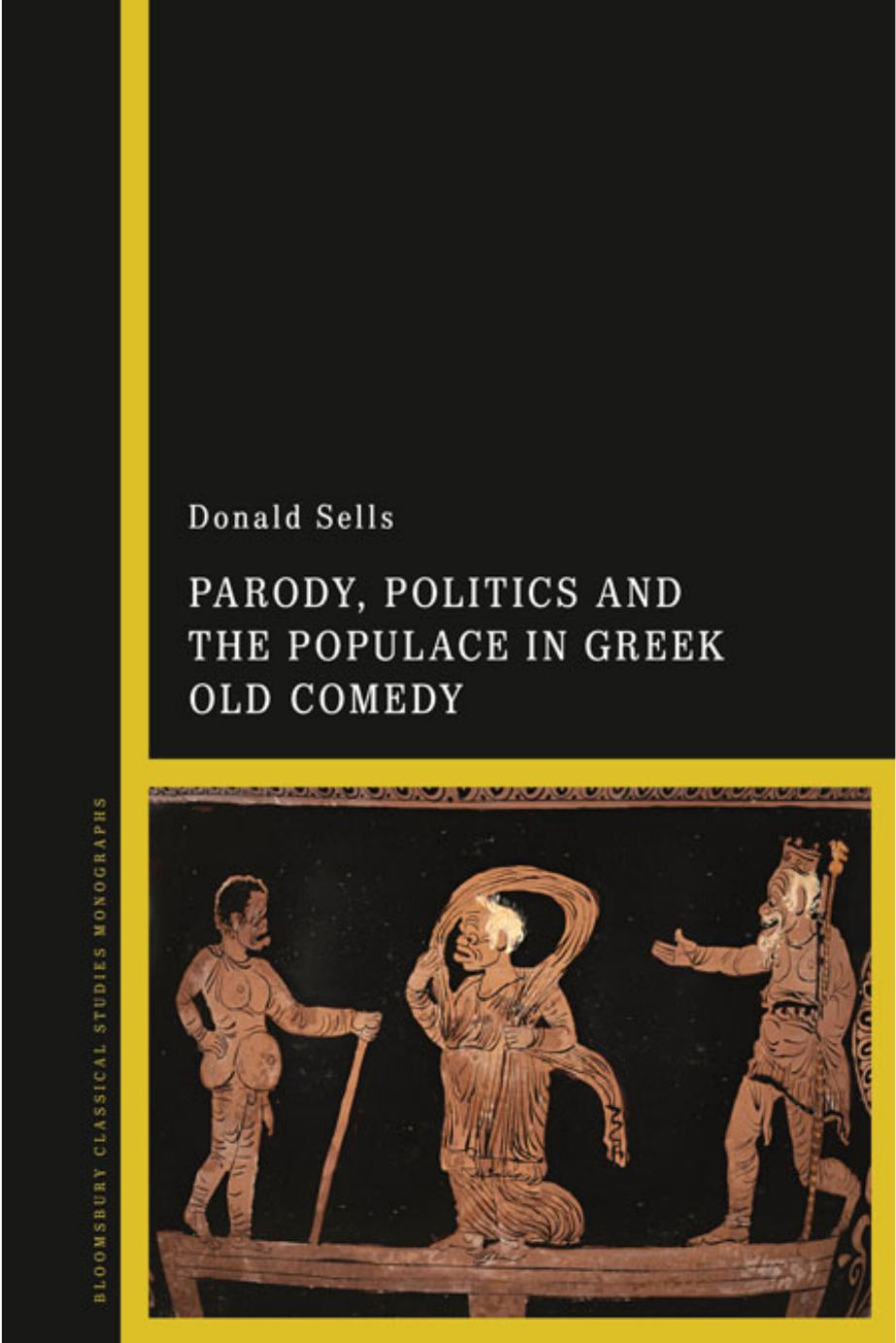Parody, Politics and the Populace in Greek Old Comedy by Donald Sells

Author:Donald Sells
Language: eng
Format: epub, pdf
ISBN: 9781350060531
Publisher: Bloomsbury UK
Published: 2018-11-16T16:00:00+00:00
Conclusion
Peace marks a significant development in the strategy and perspective of trugôidia since Acharnians four years earlier. The concept moves beyond Dicaeopolis’s use of tragedy for political agency and assumes a life of its own as the driving principle of Peace’s action. In Peace, parody and appropriation display comedy’s poetic potency and agency by converting failure in other genres into its own success. This is most elegantly, if grotesquely, represented by the dung-beetle of the Bellerophontes parody rather than the traditional focus of this sequence, the hero. The beetle’s amalgamation of different genres and relevant, popular content embodies the agency of trugôidia and its very biology is analogous to comedy’s creation of poetic success from other genres’ failure. Much like its rider, who makes ‘old’ things new again, the dung-beetle’s mode of life – the consumption of dung – is a metaphor for trugôidia’s appropriation of old and used-up material from its natural competitors. The beetle’s transgression of the upper air above the stage challenges tragedy’s conception of the cosmos in perhaps the most immediate expression of comedy’s aspiration to tragedy’s revered status.
Insofar as it rejects tragedy’s organization of the world, Trygaeus’s use of the crane to cross the conventional boundaries of mortal travel in tragic theatre anticipates the intergeneric spirit of Peace’s second half. Moreover, the co-operative panhellenic virtues displayed in the hauling-scene, which has already been treated in Chapter 3, establish the egalitarian values of the second half’s renewal of the traditional institutions of sacrifice and marriage. Aristophanes’ focus on these institutions signifies a shift (or evolution) in his strategy of intergeneric engagement from the direct confrontation of performative rivals to indirect challenges to tragedy through a pair of its own parodies, the popular topoi of perverted sacrifice and marriage. By renewing the positive connotations of these fundamental rituals and challenging tragedy’s dominant cultural narrative of corrupted sacrifices and weddings, Aristophanes demonstrates comedy’s potential to efface tragedy’s popular representation of these practices. Trygaeus’s sacrifice and wedding are rare occasions where Old Comedy is not the genre doing the parodying but rather playing things ‘straight’ and reversing the parody of a rival text. In place of tragedy’s perverted sacrifices, the bloodless sacrifice to install Peace’s cult promotes ideas of communal solidarity and peaceful reconciliation which anthropological thought has identified as the established traditional intent of this hallowed practice. The simultaneous renewal of city and household symbolized in the comic wedding typifies comedy’s attempt to have things both ways. While a return to health for the polis in tragedy can require the destruction of an elite household, comedy’s restoration of both spheres of Greek life presents them rather as complementary. Trygaeus’s marriage, which structures the social, economic and political reorganization of post-war society’s recovery, expresses the joy, security and hope of a future world at peace. It may have captured the high hopes that Greeks placed in the Peace of Nicias as a long-term solution to the ubiquitous total war that afflicted the fifth century.109
The pervasive panhellenism of Peace’s cross-generic program, especially in the second half, is symptomatic of its historical context.
Download
Parody, Politics and the Populace in Greek Old Comedy by Donald Sells.pdf
This site does not store any files on its server. We only index and link to content provided by other sites. Please contact the content providers to delete copyright contents if any and email us, we'll remove relevant links or contents immediately.
Call Me by Your Name by André Aciman(20515)
Ready Player One by Cline Ernest(14675)
How to Be a Bawse: A Guide to Conquering Life by Lilly Singh(7486)
Wiseguy by Nicholas Pileggi(5782)
The Kite Runner by Khaled Hosseini(5178)
On Writing A Memoir of the Craft by Stephen King(4942)
Audition by Ryu Murakami(4930)
The Crown by Robert Lacey(4814)
Call me by your name by Andre Aciman(4682)
Gerald's Game by Stephen King(4654)
Harry Potter and the Cursed Child: The Journey by Harry Potter Theatrical Productions(4506)
Dialogue by Robert McKee(4400)
The Perils of Being Moderately Famous by Soha Ali Khan(4219)
Dynamic Alignment Through Imagery by Eric Franklin(4216)
Apollo 8 by Jeffrey Kluger(3707)
The Inner Game of Tennis by W. Timothy Gallwey(3687)
Seriously... I'm Kidding by Ellen DeGeneres(3633)
How to be Champion: My Autobiography by Sarah Millican(3593)
Darker by E L James(3516)
